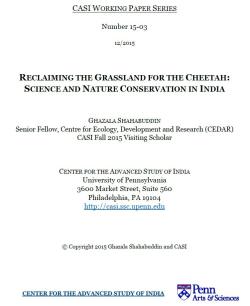CASI Student Programs Open House
2:00 to 4:30 p.m.
The Center for the Advanced Study of India (CASI) at the University of Pennsylvania provides funding and support to current Penn undergraduate and graduate students to travel to India and conduct independent research and participate in volunteer internships based at selected CASI partner organizations. CASI also offers a nine-month post-baccalaureate fellowship to support a recent Penn graduate to conduct an independent research project in India.





